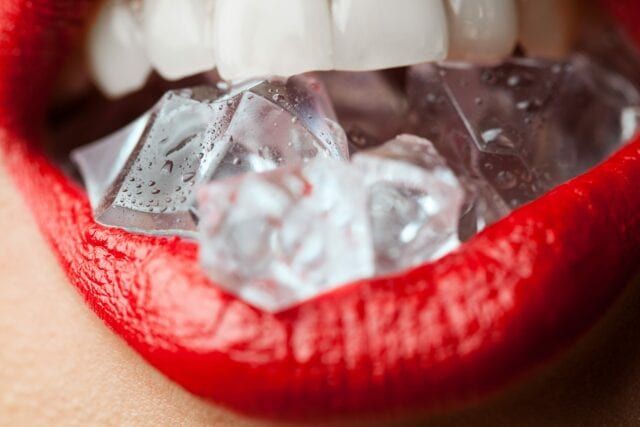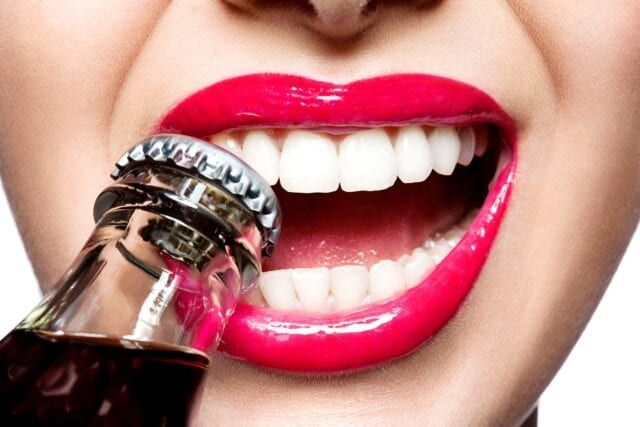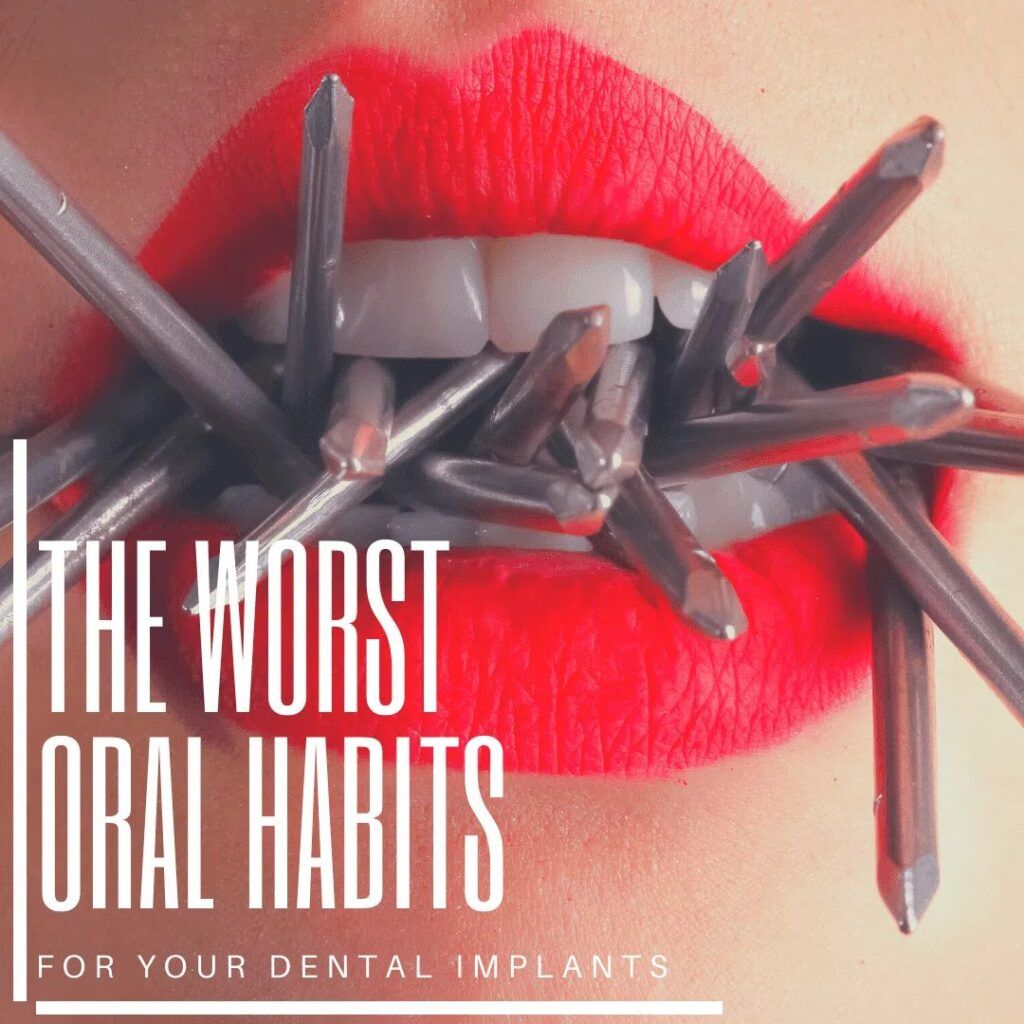After having dental implants placed, most people want to make sure they do everything they can to ensure the longevity of their implants. Generally, this consists of caring for one’s implants by maintaining proper oral hygiene such as brushing twice a day, flossing daily, and visiting the dentist at least once every six months for a check up and cleaning.
In addition to practicing good oral hygiene, another part of caring for dental implants deals with avoiding certain behaviors. Despite the fact that dental implants are exceptionally strong, they can still become damaged just like natural teeth. Certain oral habits can drastically increase the risk of damaging dental implants, some more so than others. To help you know which oral habits are the most detrimental, we have compiled a list of the worst oral habits for your dental implants:
Brushing Too Hard
Although practicing good oral hygiene is important for the longevity of your implant and restoration, brushing too hard actually does more harm than good. This is because applying too much pressure while brushing can cause the gums to recede, or pull away, from the teeth and/or dental restoration. This is especially detrimental to dental implants because it can allow bacteria to infect the tissue around the implant. In severe cases, this can cause the implant to fail. If your toothbrush has bristles that fray outwards or if you notice your gums receding, you may be using too much pressure to brush your teeth. Talk to your dentist to make sure you are using the right amount of pressure.
Bruxism
Bruxism is a term used to describe the act of grinding or clenching one’s upper and lower teeth together. This behavior often occurs at night while sleeping, which means that many people are unaware of the behavior. Bruxism can produce symptoms such as daytime sleepiness, morning headaches, general facial pain, and jaw pain. Most dentists can diagnose bruxism by wear patterns on the teeth and/or dental restorations.
Unfortunately, bruxism is extremely damaging to both your natural teeth and dental implants. For starters, it places excess strain on the implant itself by constantly exerting excess force. Secondly, bruxism also causes the implant-supported restoration to wear down faster and can increase the risk of it becoming chipped or cracked. Any remaining natural teeth can also be damaged or worn down as a result of bruxism.
However, just because you grind or clench your teeth does not necessarily mean that you cannot have dental implants placed or that they will eventually become damaged. In cases where a patient with bruxism gets dental implants, implant dentists will usually prescribe a dental night guard. This is a protective mouthguard that is fabricated to fit over the teeth and is worn at night. Not only does the mouthguard protect the teeth and/or dental restorations from being damaged or worn down, but it positions the jaw to discourage bruxism and alleviate pressure on the implant.
Chewing on Ice

In the heat of summer, it may seem like a nice idea to chew on a few ice cubes to cool down. However, this is actually extremely dangerous for both your natural teeth and/or dental restorations. This is because tooth enamel, dental materials, and ice all have a crystalline structure at the microscopic level. When two or more crystalline structures are forcefully pushed together, the laws of science dictate that one structure must break. Although it is generally the ice cube that breaks, there are several cases where tooth enamel or a dental restoration has been broken by chewing on ice. Therefore to prevent damaging your implant-supported restoration, it is recommended to avoid chewing on ice. One way to accomplish this is by drinking with a straw.
Nail Biting
Nail biting is another habit that can be extremely detrimental to your teeth and/or dental restoration. Although most people associate nail biting with damage to their nails and nail beds, it can actually result in chipped teeth and/or dental restorations. This is because your nails are thin and biting them causes your teeth to bite down on one another at abnormal angles. Not only can nail biting increase the risk of damage to your teeth or restoration, but it can also lead to jaw joint dysfunction because the joint becomes stressed from the lower jaw being in a forward position when nail biting. To avoid nail biting, it is recommended to use a bitter nail polish and/or find something to fidget with to occupy your hands.
Smoking
Smoking is detrimental to both your oral and overall health to begin with, however it can be especially damaging after having dental implants placed. This is because the chemicals found in cigarettes restrict blood flow to the gums, which slows the healing process. People who smoke are more likely to suffer implant failure and some implant dentists may not place implants in people who smoke because of this. The best option is to quit, however even temporarily stopping one week prior and two months after having dental implants placed can decrease the risk of implant failure. Still, it is best to discuss this with your implant dentist.

Using Your Teeth as Tools
Teeth (natural or artificial) are great tools for biting, chewing, and grinding up food. However, that is all they are meant for. Even though you may think that your teeth and/or dental restorations are strong enough to open bottles or packages, cut things, or hold things, they are not meant for this purpose. Oftentimes, using your teeth as tools simply results in them becoming damaged. In some cases, you may even cause your implant to shift, especially if it has not completely fused with the surrounding bone yet. The best way to avoid damage in this situation is to simply avoid using your teeth as tools.

